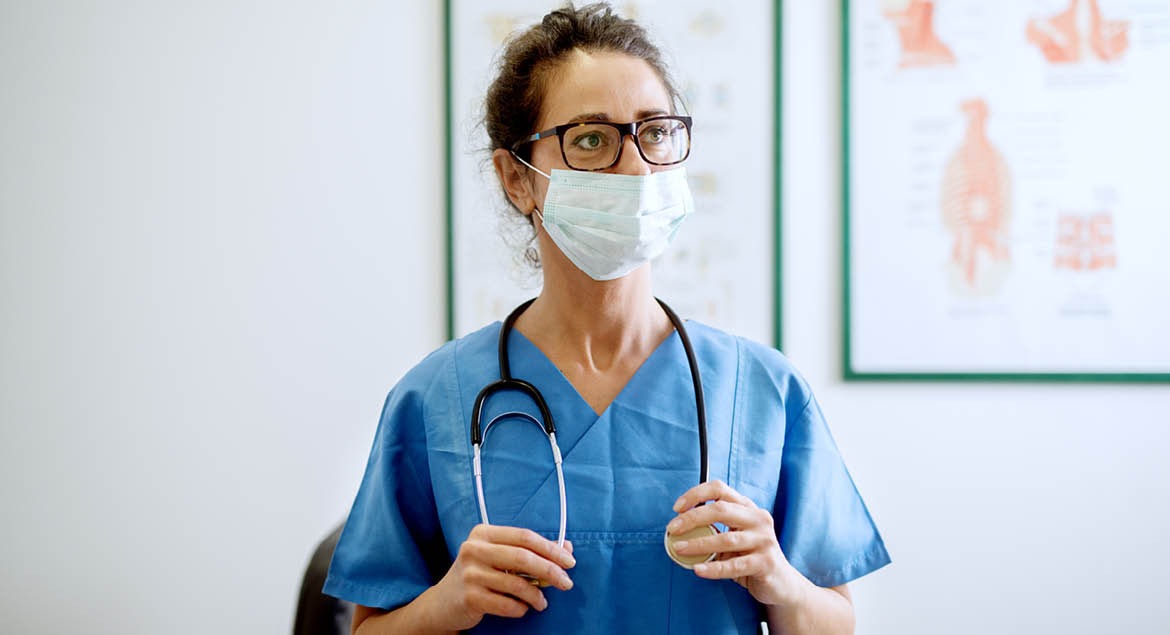Nurses and midwives’ work has never been more important
01 May 2020
5
min read
It is time to value the essential work being carried out to keep Australians safe during the coronavirus health emergency, according to Beth Mohle, secretary of the Queensland Nurses and Midwives Union.

Health and aged care, community care, allied health workers, teachers, and supermarket workers in the retail sector continue to be considered essential business and service employees during the situation created by the COVID-19 pandemic.
“What are the things that are really important to us, what are the jobs that are really important to us when times get really tough, what are the industries that we need to have in our country going forward so that we can continue to protect ourselves?,” Ms Mohle asked.
This gives us the opportunity to reflect upon that and then reflect upon how we actually demonstrate our value of our work and that brings us back to the gender pay gap.”
International Year of Nurses and Midwives
Ms Mohle said while 2020 was a potential tipping point, not only due to COVID-19, but also in the response to climate extremes of bushfires and floods, it was also the International Year of the Nurse and the Midwife.
However, nurses and midwives across Queensland and the rest of the country were likely to be too busy to celebrate, Ms Mohle said.
“But we are elevating awareness of the role of nurses and midwives by doing,” she said. “We are do-ers. We tend to be silent, getting-on-with-the-job type people.”
Due to COVID-19, many events and celebrations had been cancelled or postponed, but nurses and midwives across Queensland would still celebrate and recognise the contributions of nurses and midwives in the lead up to International Day of the Midwife on 5 May and International Nurses' Day on 12 May.
But the response to COVID-19 also presented the opportunity in 2020 to make changes that used the skills and experience of nurses and midwives, such as virtual wards being established to care for people in their homes, Ms Mohle said.
“There is a whole lot of opportunity here for community-based care and wellness models,” She said. “One thing I would like to see happen is that our health and aged care system is designed around putting people at the centre of the system, rather than the system being carefully designed around the service providers.”
Personalising care and your super
Just as health care should be designed around the needs of the individual, so too should superannuation, said Ms Mohle, who is also a Trustee of the Board of QSuper.
Personalising your money and your retirement also meant supporting your super and your finances at moments that matter through your life.
Retirement is not only about having an adequate superannuation balance, but also having access to high-quality heath and aged care services and affordable housing, she said.
“There are a whole lot of issues that go into making a comfortable retirement; no two people are exactly the same in terms of their circumstances and needs.”
Just as we need to personalise health care for the individual, so too do we need to personalise retirement needs.”
Ms Mohle said the Australian Government’s decision to allow eligible individuals affected by coronavirus to apply for early access of up to $10,000 of their superannuation in the 2019-20 financial year and up to a further $10,000 in the 2020-21 financial year, under certain conditions, risked people, particularly women and those who were out of a job, taking two financial hits from COVID-19.
“They are already paying for it with their livelihood currently, but they are going to pay for it again when they reach retirement by having reduced retirement savings. It’s very short-sighted and very regressive in our (QNMU) view,” she said.
Personal view disclaimer. The opinions expressed and those providing comments are theirs alone, and do not necessarily reflect the opinions of the QSuper Board. No responsibility is taken for the accuracy of any of the information supplied and you should seek advice for your circumstances.